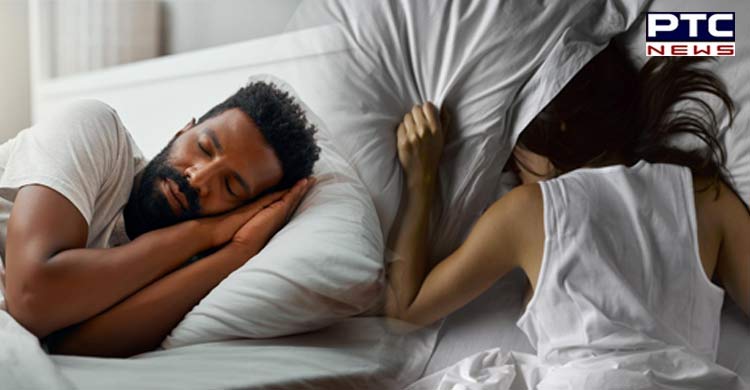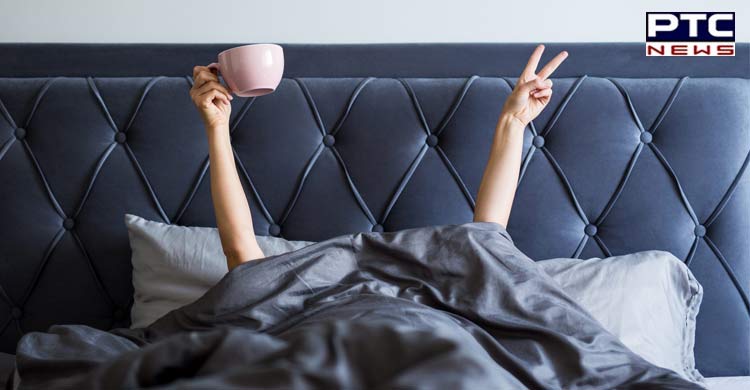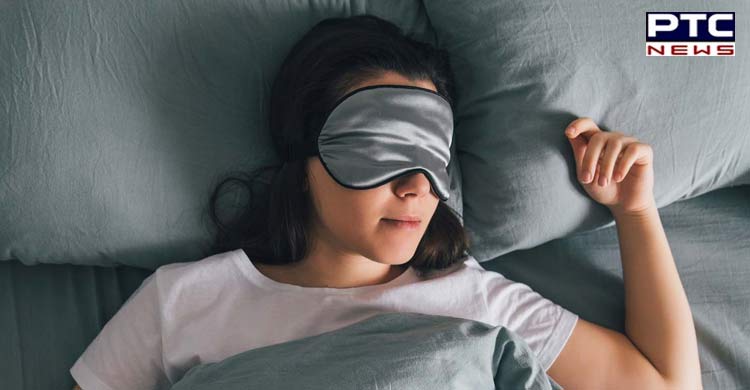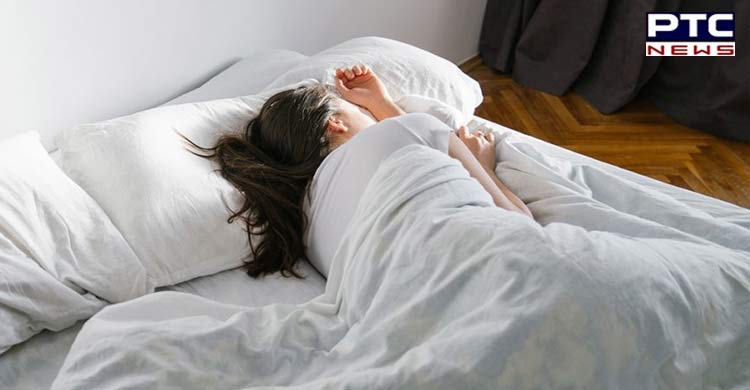
Uninterrupted sleep improves face-name learning, says study
Are you someone who rarely forget a face, but struggle with names? The remedy to boost your face-name learning is as near as one's pillow. As per recent research, people's name recalls significantly improve after an uninterrupted deep sleep.
 New research by Northwestern University has become the first to document the effects of reactivating memory during sleep on face-name learning.
The paper titled, 'Targeted memory reactivation of face-name learning depends on ample and undisturbed slow-wave sleep' has been published in the journal 'NPJ: Science of Learning'.
According to researchers, people's name recall improved significantly when memories of newly learned face-name associations were reactivated while they were napping and the key to this improvement was an uninterrupted deep sleep.
New research by Northwestern University has become the first to document the effects of reactivating memory during sleep on face-name learning.
The paper titled, 'Targeted memory reactivation of face-name learning depends on ample and undisturbed slow-wave sleep' has been published in the journal 'NPJ: Science of Learning'.
According to researchers, people's name recall improved significantly when memories of newly learned face-name associations were reactivated while they were napping and the key to this improvement was an uninterrupted deep sleep.
 "It's a new and intriguing finding about sleep," said lead author Nathan Whitmore, a PhD candidate in Northwestern's Interdepartmental Neuroscience Program. "It shows us that the way information gets reactivated during sleep to improve memory storage is associated with high-quality sleep."
Also Read | Punjab polls: Congress bats for Charanjit Singh Channi as CM candidate?
The research team found that for study participants with EEG measures (a recording of the electrical activity of the brain picked up by electrodes on the scalp) that indicated disrupted sleep, the memory reactivation was not helpful and could even be harmful. However, in those with uninterrupted sleep during the specific times of sound presentations, the reactivation led to a relative improvement averaging just over 1.5 more names recalled.
"It's a new and intriguing finding about sleep," said lead author Nathan Whitmore, a PhD candidate in Northwestern's Interdepartmental Neuroscience Program. "It shows us that the way information gets reactivated during sleep to improve memory storage is associated with high-quality sleep."
Also Read | Punjab polls: Congress bats for Charanjit Singh Channi as CM candidate?
The research team found that for study participants with EEG measures (a recording of the electrical activity of the brain picked up by electrodes on the scalp) that indicated disrupted sleep, the memory reactivation was not helpful and could even be harmful. However, in those with uninterrupted sleep during the specific times of sound presentations, the reactivation led to a relative improvement averaging just over 1.5 more names recalled.
 The 24 participants in the study were aged from 18 to 31 and were instructed to memorise the faces and names of 40 students from a hypothetical Latin American history class and another 40 from a hypothetical Japanese history class. They were asked to tell the name that went with each face when it was shown again.
Participants took a nap after the learning exercise while the researchers used EEG measurements to carefully examine brain activity. Some of the names were softly played on a speaker with music connected with one of the classes when participants reached the N3 "deep sleep" level.
When the participants awoke, they were retested on their ability to recognise the faces and recall the names associated with each one.
The 24 participants in the study were aged from 18 to 31 and were instructed to memorise the faces and names of 40 students from a hypothetical Latin American history class and another 40 from a hypothetical Japanese history class. They were asked to tell the name that went with each face when it was shown again.
Participants took a nap after the learning exercise while the researchers used EEG measurements to carefully examine brain activity. Some of the names were softly played on a speaker with music connected with one of the classes when participants reached the N3 "deep sleep" level.
When the participants awoke, they were retested on their ability to recognise the faces and recall the names associated with each one.
 The findings on the association between sleep disruption and memory accuracy are interesting for several reasons, say researchers.
"We already know that various sleep disorders, such as apnea, can affect memory. Our research indicates a possible explanation for this - frequent sleep interruptions at night might be degrading memory."
In order to learn more about the underlying brain mechanisms, the lab is currently doing a follow-up study to reactivate memories and intentionally interrupt sleep.
"This new line of research will allow us to address many important questions," said the research team.
Also Read | Assembly elections 2022 Live Updates: Punjab CM's nephew raided by ED in illegal mining
-PTC News
The findings on the association between sleep disruption and memory accuracy are interesting for several reasons, say researchers.
"We already know that various sleep disorders, such as apnea, can affect memory. Our research indicates a possible explanation for this - frequent sleep interruptions at night might be degrading memory."
In order to learn more about the underlying brain mechanisms, the lab is currently doing a follow-up study to reactivate memories and intentionally interrupt sleep.
"This new line of research will allow us to address many important questions," said the research team.
Also Read | Assembly elections 2022 Live Updates: Punjab CM's nephew raided by ED in illegal mining
-PTC News
